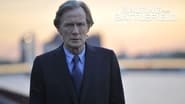Colibel
Terrible acting, screenplay and direction.
SoTrumpBelieve
Must See Movie...
Limerculer
A waste of 90 minutes of my life
Tayloriona
Although I seem to have had higher expectations than I thought, the movie is super entertaining.
ochichornye
In the final installment of David Hare's Worricker trilogy, ex-MI5 analyst Johnny Worricker (Bill Nighy) pops up in Germany. He's still on the run from the British authorities, who are now aided by the German intelligence service in the cat-and-mouse game of tracking him down. The scandal involving the shady dealings of the British Prime Minister (Ralph Fiennes) is threatening to break in the open. A wind of change is palpable and one gets the feeling that events are finally heading to a showdown. It was always difficult to keep up the quality and suspense after the excellent first two films. For one, I found there was just a little too much explaining at the beginning rather than trusting in the intelligence of the viewer. So 'Salting' is probably the weakest of the trilogy, but weaker than excellent is still very good. I particularly liked the circular quality of the ending and the fact that, as in life, none of the main characters comes out as a real winner.The acting and the production values, as in the other episodes, are consistently excellent. The sensitive camera work supports the intricate mood changes and turns in conversations. Paul Englishby's Jazz tracks are a perfect match for Worricker's character. In a recent interview with Zap2it, Bill Nighy said that he would love David Hare to write more 'Worricker' for him. It's going to be a tough call to come up with an original storyline and to keep up the quality, but I for one wouldn't mind if he tried.
Th-232
I really like 'Page Eight', the first movie in this trilogy. 'Turks & Caicos', the second movie, wasn't as good, but it was OK. This last movie was as good as the first one! All in all, a very good set. I really enjoyed them. If you enjoyed 'Tinker, Taylor, Soldier, Spy' (1979) and 'Smiley's People' (1982) both by the BBC then you will enjoy this series too. It's the same style of movies/mini-series about the world of spies. The old BBC mini-series are classics, both of them, and 10 out of 10. This trilogy is 8/10. Bill Nighy (as Johnny Worricker) is the lead character in all three movies and he does a great job. Ralph Fiennes is also very good as the Prime Minister. The only actor I didn't like was Helena Bonham Carter: like someone else has already stated she didn't make a very convincing spy.
Andy Hayler
A remarkable cast was assembled for this: Ralph Fiennes, Helena Bonham-Carter, Bill Nighy, Olivia Wilde, a who's who of British acting. There are spies and politics, a prestigious writer, so why did this end up being so dull? It is hard to fault the acting, but the script somehow manages to plod along with barely any tension. It seems more like a talking shop from an Islington dinner party than an action packed spy thriller. I enjoyed Fiennes' suspiciously Blair-like prime minister, and indeed the performances all round are fine, with Mr Nighy portraying a silken if disgruntled ex-spook. Yet the action, such as it is,, trundles along at a funereal pace. Perhaps Mr Hare's undoubted talents are better suited to the stage than to the moving picture. I can't see this leading him to being asked to write.a Jason Bourne screenplay any time soon.
paul2001sw-1
'Salting the Battelfield' is one of two new television films by playwright David Hare, following up on an earlier film of his about a renegade British spy; and having (mostly) praised the first, 'Turcs and Caicos', I now feel obliged to criticise the second, even though the two are more similar than different. The critiques are two: firstly, the story takes place in a beautiful Britain full of beautiful people, I may like Helena Bonham Carter as much as the next man, but she really doesn't make a very convincing spy, and the elegiac music gives the whole piece a "sun sets sadly on the glorious British Empire" feel at odds with the reality of the nature of modern society and its contribution to the growth of Islamic terrorism. This film is indeed supposedly about terrorism, and the threat (or opportunity) that it offers to the state; but we never get a glimpse of anything that might be a cause of it. Indeed, the second criticism is that we rarely get a glimpse of anything, much; when Bill Nighy's character has an argument with his daughter, it's nicely scripted as far as it goes, but we know nothing to allow us to judge the man, his words and his feelings; and its emblematic of an entire drama where the cast talk around the issues but the audience is never sufficiently well-briefed. Is the Prime Minister paranoid, a con-man, or does he really believe he is doing the best for his country; the film is good on the psychology here, but poorer on the political (to the extent that the PM is doing his best, then the real, unanswered question is, to what extent is he right?). The praise I had for Hare's earlier film also holds true here (though to a slightly lesser extent): the elliptical dialogue is a treat, even if it sometimes frustrates. But what frustrates most is that Hare, who personally is a very political man, seems unsure of what he wants to say here; and leaves us with a portrait of the delicate moral dilemmas of the upper middle class that seems as far away from the life most of us actually live as the Turcs and Caicos islands themselves.



